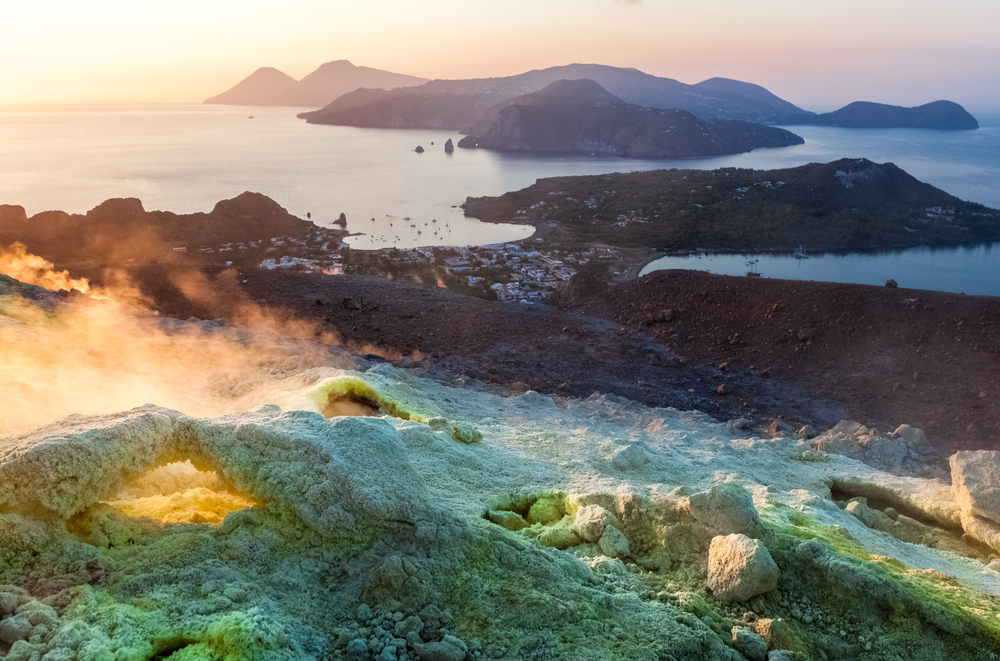The island of Vulcano in the Tyrrhenian Sea off the coast of Sicily is the third largest and southernmost of the Aeolian Islands with an area of 21.2 km². Giving its name to the word volcano, Vulcano still keeps its promises today and is therefore not for the faint of heart. Historical traditions tell of recurring, violent volcanic eruptions until the recent past, which made life on the island a game with fire.
Despite the last eruption over 100 years ago, the volcanic island remains active and is therefore an attraction for tourists from all over the world.
You don’t necessarily have to touch the island with tongs, because there are monitoring stations in several places that can predict an eruption at any time and thus guarantee the safety of tourists and the few locals.
The Forge of the Gods
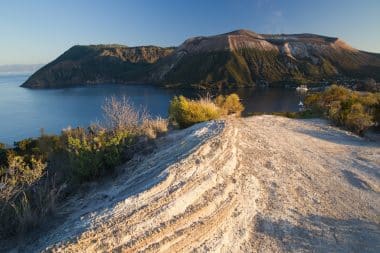
As the name Vulcano suggests, the island is dominated by volcanic structures.
It is not without reason that the island took on a special status in Roman mythology as the forge of Vulcan – the god of fire.
The southern part of the island, also known as Old Vulcano, is dominated by a large stratovolcano that encloses the Piano Caldera plateau and Monte Aria with about 500 meters of altitude and thus the highest point of the island.
In the northwest of the island rises the Latia complex, which contains the active volcano Fossa with 391 meters of altitude and was also formed from stratovolcanoes that have grown together.
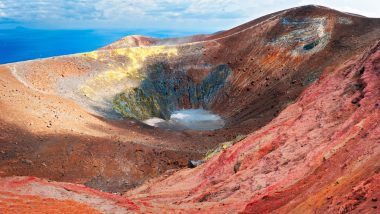
Finally, in the north of the island is the Lava Plateau of Vulcanello, which can boast the most recent history of all the island’s characteristics and at the same time forms the most densely populated region of the island. A large part of the tourist infrastructure, as well as the cities of Porto Ponte and Porto Levante can be found here. This is also the starting point for ferries to Milazzo, Naples or other neighboring islands.
What to see in Vulcano
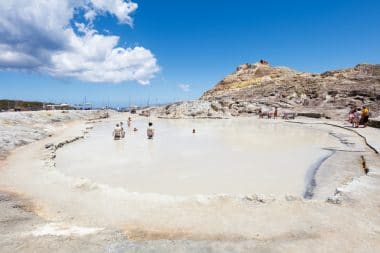
The high plateaus of the island offer hikers, walkers and photographers a wide playing field and, if you are not afraid of the ascent, enrich the visit with magnificent views. If you like it a little more leisurely, you can enjoy the black lava beaches around Porto Ponte and relax far away from any exertions.
Due to its volcanic activity, the island naturally has all kinds of special features and tourist attractions to offer.
It is not without reason that the Vasea di Fanghi attracts a large part of the tourists. This is a sulphurous mud bath caused by rising gases from the interior of the earth’s crust. The warm sulphur mud has always been said to have a healing effect and even the Romans enjoyed its healing effect on body and mind. For example, it is said that a bath in the mud can alleviate skin diseases, osteoarthritis and joint diseases.
However, the rising sulphur vapours have their pitfalls and should be enjoyed with caution. In addition to a foul smell, these fumes can also be harmful to health if there is not enough fresh air.
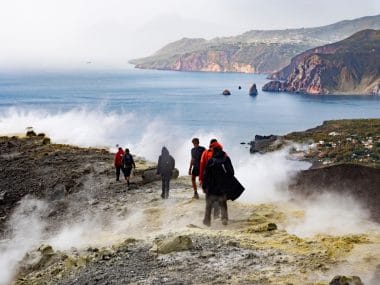
Another natural spectacle is the Gran Crate, a volcanic cone formed by recurring eruptions, whose surrounding lava rock is colored yellow by constantly escaping sulfur vapors, thus producing breathtaking crystal structures.
No less exciting is the Valle dei Mostri, the Valley of the Monsters, on the Vulcanello peninsula. Black volcanic rock forms bizarre sculptures here, which can form different animal silhouettes depending on how you look at them.
The island thus not only offers a wide range of activities and variety for those seeking relaxation and bathers, but can also inspire adventurers. Whether you are looking for a beach holiday, want to go on a geological discovery tour or want to enjoy the healing springs. Vulcano has enough variety to offer to inspire everyone and with a bit of luck you might even be able to claim afterwards that you just got away from a volcanic eruption.


